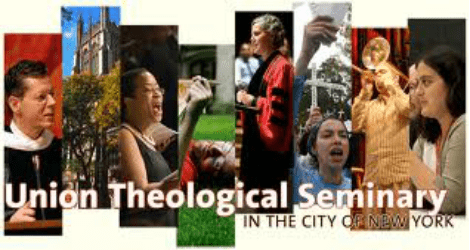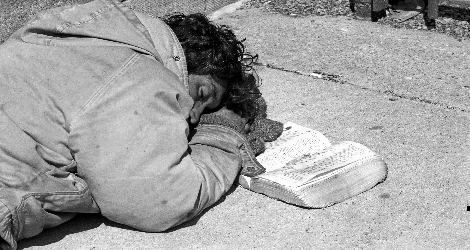An Unfortunate Detour: Puritan Economic Thought
[wpcol_1half id=”” class=”” style=””]
It has, of course, been widely noted that the social humanism that Biéler finds in Calvin is barely evident in the Calvinism that follows him. Concerning the doctrine of vocation in particular, Richard Douglas notes that the “highly unified theology of vocation” which developed during the Reformation was a “transitory and impermanent” ethic which “survived intact for scarcely two generations.”[15] The most conspicuous inheritors of Calvin’s economic thought were the Puritan communities in England and later in the American colonies, and it is to them that much of the opprobrium for distorting Calvin’s work has been attached.
Some of this is patently unfair. English Puritan theologians such as William Perkins and Richard Baxter did subtly change the focus of Calvin’s economic thought, but we might give them credit for attempting to extend the doctrine of vocation beyond the boundaries of medieval society and to apply it to a world vastly different from Calvin’s Geneva. However, they do contribute to the devolution of vocation into a much more secular theory, one that prizes above all human industry almost as an end in itself.
The influence of Puritanism on the Reformation idea of vocation has been a topic of debate at least since the publication of Weber’s The Protestant Ethic and the Spirit of Capitalism. Weber notes that among Puritans, the question of whether one was of the elect became central.[16] The determining sign of election became work, and the horror of idleness dominates much of the theology of this period. Weber further notes that the emphasis placed on continual activity led to a rapid increase in production. The combination of a fervent industriousness with another typically Puritan focus on frugality in consumption led to the accumulation of capital.
The accumulation of wealth which resulted from the conscientious exercise of Puritan values placed the Puritan in a dilemma. The fear of riches is obvious in the work of Puritan theologians, but the proper exercise of calling would lead, at least in theory, to the possession of the very thing about which Puritan theology worries. Kemper Fullerton, writing on Weber’s thesis avers, perhaps too glibly that “the Puritan attitude to calling, with its almost automatic result in accumulation of riches, was destined to become more influential than the Puritan fear of riches.”[17]
[/wpcol_1half] [wpcol_1half_end id=”” class=”” style=””]
While Weber’s work on the Puritan theology of vocation and its effects has carried great weight in the ongoing discussion of Reformed economics, R.H. Tawney’s Religion and the Rise of Capitalism is less known, but no less valuable. Tawney’s major premise is that Puritan theology created such a schism between the life of the elect and the life of the world that any attempt at social cohesion within the world was abandoned and that individual conscience became the sole reference point for religious practice. He writes, “While the revelation of God to the individual soul is the center of all religion, the essence of Puritan theology was that it made it, not only the center, but the whole circumference and substance, dismissing as dross and vanity all else but this secret and solitary communion.”[18]
The end result of this theology is a weakening of social bonds and an abandonment of any sense of an organic model of community. As Tawney expresses it, the Puritan view towards any human association is that such association is inevitably suspect. The casualty in the strengthening of the individual will, which was to Tawney the dominant theme of Puritan theology, was any sense of social cohesion. As Tawney explains, “The moral self-sufficiency of the Puritan nerved his will but it corroded his sense of social solidarity. For, if each individual’s destiny hangs on a private transaction between himself and his Maker, what room is left for human intervention?”[19]
The distrust of human intervention, either individually or on the part of government, and the discarding of the ideals of fraternity for those of liberty,[20] led to an increasing disregard among those of the Puritan persuasion towards any efforts made in the direction of limiting liberty in the name of the common good. The distrust of the world led to an increasing confidence in individual choices, both in politics and in the market. Tawney speaks of a “profound distrust [of] the interference both of Church and of State” leading to an “administrative nihilism.”[21]
If Tawney is correct, we have moved a long way from Calvin’s understanding of human economic activity. While Puritan theology rarely went so far as to unabashedly praise wealth accumulation (that will come later) it opens doors towards unfettered human economic activity in ways that Calvin directly opposes. If our religious faith centers entirely on a personal, private focus on our own salvation it becomes difficult to find any room for what Calvin called vocation and limited space for the practice of true stewardship.
[/wpcol_1half_end]






Unbound Social